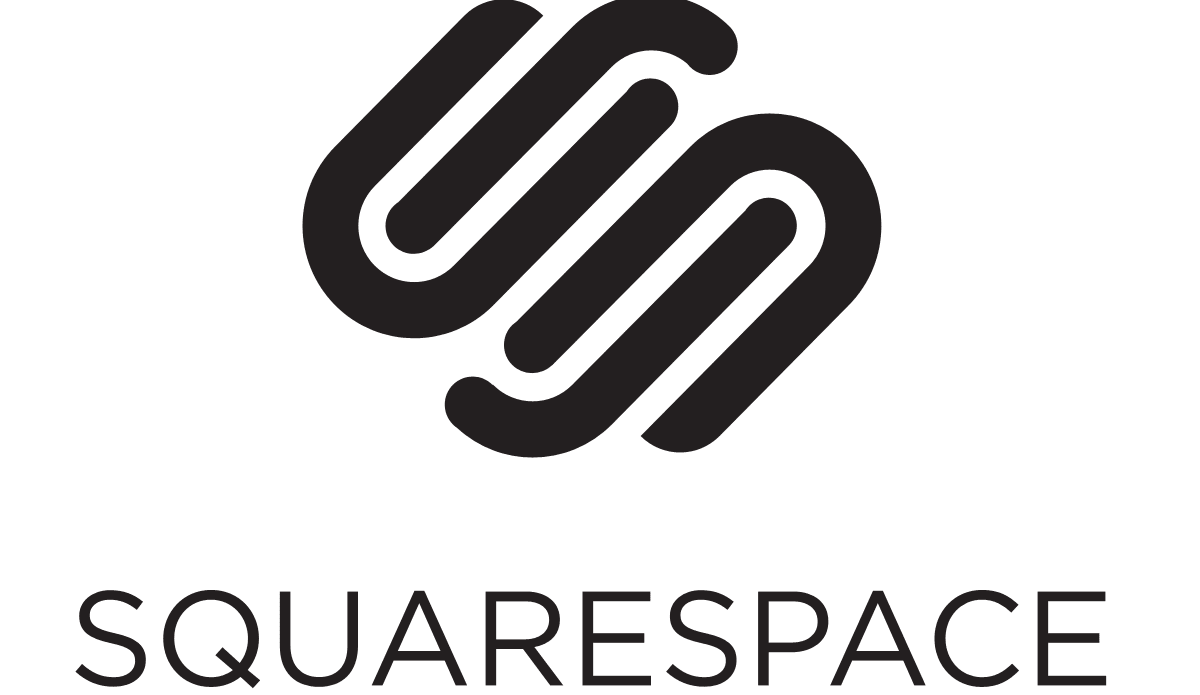

Quick Links
Quick Links
There’s real money to be made when you start a blog. Some of the biggest bloggers today can earn up to $10,000 per month depending on the page views on their blog posts.
However, just like any earning opportunity on the internet, making money through blogging comes with a small caveat. How much you earn is greatly affected by a slew of factors including the topic you write about, the steps you take to monetize your blog, how engaging your content is, and how well you promote your blog.
But with the right monetizing strategies, a lot of hard work, persistence, and consistency, you can generally turn your blog into an income-generating platform.
If you’ve ever wondered what it takes to build a successful blog you can earn from, then you’ve come to the right place. Today, we’ll be talking about setting up and monetizing a blog to double your income. Let’s get started!
Step 1: Find Your Niche

The first thing you need to do before starting a blog is to determine what you’ll write about. Finding a blog niche lets you target a specific market through your content. It can be as broad or specific as you want it to be.
The key to finding your niche is three-fold:
- It has to be a topic you are passionate about
- It has to be something other people care to read about
- It should be lucrative enough for you to still make money after some time
Many bloggers have found their niche by determining what they’re passionate about. This is a good starting point because you’re likely to have a certain level of knowledge and expertise about this topic already. Going with your passion also ensures that you’d still want to write about it even after the excitement of starting a blog has passed and after you’ve written countless articles about it.
Another big thing to consider if people will want to read your content. If no one else is interested in it, you’re going to have a difficult time building an audience and earning an income. Your niche should be something people are constantly searching about online. A little keyword research will give you a clue about whether or not other people are interested in your niche.
Finally, your niche should be profitable. Not all blog niches are created equal. Some are more lucrative ventures to pursue due to their inherent market demand like these five niches:
Food
Food is a popular blog niche that can generate a lot of organic searches and traffic. Readers are constantly looking for recipes especially those that cater to a specific kind of diet like vegan, keto, or paleo.
Fashion
Fashion and style blogs is a great way to highlight your unique voice, personality and taste in fashion. Apart from bringing your unique perspective and highlighting your favorite products, merchandise, and brands, this niche also opens up big opportunities for collaborations.
Personal Finance
Managing your money can be a daunting experience for some people. This is why many readers turn to personal finance blogs for help. If you’re a money-savvy individual, you can share your tips and tricks with your readers by focusing on this niche.
Lifestyle
The lifestyle niche has many opportunities for monetization techniques and sponsorships. Under this niche, you can create content about a wide range of topics that are interesting to the people who are similar to the author’s life stage, experience, and location. You can create content from your personal interests and daily activities that will resonate with your target audience.
Technology and Gaming
This niche is for tech-savvy individuals who are interested in gadgets, games, software tutorials, news on tech companies or products, and demographic-specific information about gaming and tech. It provides a great opportunity for affiliate income.
Step 2: Choose a Platform
Once you’ve decided what you want to write about and made sure that your niche can potentially turn a profit, it’s time to choose a blogging platform. There’s a wide selection you can find today and each one has a unique set of features that may or may not be useful for your blogging needs. These are the four best options for you:
WordPress

Price: Free with an option for 3rd-party paid hosting
WordPress is a free and open-source content management system. As one of the most popular platforms out there, it lets you build websites quickly even if you have no knowledge of coding and programming. It has a robust library of add-ons for specialized functions as well as themes for a customized appearance.
There are two ways to create a blog on WordPress. The first is through WordPress.com which stores your site’s content for free on their servers. There are no set-up costs for this version. However, you’ll only have access to a limited set of functions unless you want to pay for upgrades. Your site will also come with “.wordpress” in the domain and you’ll have limited control over advertising revenue.
On the other hand, you can also create a self-hosted WordPress blog via WordPress.org. This version gives you full control over your website. You can customize it with thousands of free themes and plugins. It’s worth noting that due to its popularity, it may also be more vulnerable to security threats than other options.
SquareSpace

Price: Monthly or Annual Plans ranging from $12 to $46 paid monthly.
SquareSpace is a website building and hosting platform that allows users to use pre-built website templates and drag-and-drop elements to create and modify web pages. It features clean modern templates, markdown, RSS, tags, categories, drafts, comments, moderation, customizable URLs and more.
Some users, however, may find that the usability of the website editor can still be further improved. Their templates also tend to score low in terms of page speed which may affect user experience.
Blogger

Price: Free
Blogger is a blog-publishing service owned by Google. The blogs are hosted by Google and generally accessed from a subdomain of blogspot.com. Blogs can also be served from a custom domain owned by the user (like www.example.com) by using DNS facilities to direct a domain to Google’s servers.
It’s a good place to start a blog since it is completely free and easy to use and it gives you access to tools such as AdSense and Analytics. However, there are limitations on content storage and bandwidth, per user account.
Wix

Price: Free with an option to upgrade to a Premium Plan ranging from $4 to $24 per month.
Wix is a cloud-based web development service that allows users to create HTML5 websites and mobile sites through the use of online drag and drop tools. You can easily add social plug-ins, e-commerce, online marketing, contact forms, e-mail marketing, and community forums a variety of Wix-developed and third-party applications. There’s also unlimited bandwidth access and integration, and domain registration options.
However, it is more expensive than using a self-hosted WordPress blog and the customization options aren’t as robust.
Step 3: Pick a Domain Name and Hosting

Picking a domain name is a crucial step when you start a blog. Your domain name is your online identity as a blogger. A creative and memorable name can reel in more visitors to your site. Think of it as an extension of your brand. Therefore, it should contains phrases, words, and keywords related to your niche. When possible, opt for a “.com” domain extension since it is easier to remember.
Typically, your web hosting service can help you find an available domain name if you don’t already have one. They’ll also provide you with the services you need to ensure that your blog is visible on the internet.
When choosing a web host, make sure that it is reliable, has a fast connection, and has a user-friendly web-based control panel that lets you manage you website anywhere. It should also allow for data backup, flexibility in terms of upgrading or downsizing, as well as competitive pricing.
Step 4: Create Engaging Blog Posts

Now that you have your niche, platform, domain name, and hosting services figured out, you can start writing your blog posts. Here are a few tips you might find useful for creating engaging content:
Understand Your Audience
When creating blog content, it’s important to know who your audience is and what they are looking for. As a blogger, one of your main goals is to solve your target readers’ pain points through your content.
Create pieces of content that answer your audience’s most asked questions. You can use keyword tools, use Twitter’s advanced search options, or head over to Quora to find out what people are asking about in your niche.
Write Compelling Headlines
The title of your blog posts play a crucial role in determining their success. A compelling headline ensures that your readers take the time to read and even share your content.
Use Subheadings and Shorter Paragraphs
An important thing to remember before you start a blog post is that formatting is important. Even if you have the best ideas and you have an impeccable writing style, your readers won’t bother to read walls of text. Furthermore, most people skim over a blog post before committing to reading a whole blog.
So it’s always a good idea to write in shorter sentences and to break up your blog into subheadings. This helps your readers process your content much more effectively by giving them manageable chunks of information .
Add Images
Images make for a more visually appealing blog post. This helps create an emotional connection with your audience. Furthermore, images can help logically divide the text of your blog, make it easier to understand complex information, support your ideas, and improve your SEO rankings.
Some images you can add to your blog posts include photos, infographics, graphical illustrations, graphics, charts, and tables, screenshots, and even wireframes.
Optimize for SEO
Optimizing for SEO is a crucial part of generating traffic to your blog. Some of the most important optimization efforts you should do when you start a blog include:
- Adding a proper meta title
- Adding a proper meta description
- Optimizing for focused keywords
- Using related keyword variation
- Adding alt-text to your images
- Embedding internal links to your other content
Step 5: Monetize Your Blog

Once you’ve built an arsenal of compelling blog posts and you’ve made sure that you have an engaged audience, you can start monetizing your blog.
It’s important to note that you should first be constantly creating useful content that attracts readers before you can translate your blog activity into actual earnings. While you won’t make money immediately, if you set up your blog properly, you’ll start generating income through your content in no time.
Here are some of the monetization channels you can choose from once you’re ready to reap the rewards of your initial hard work and persistence:
Affiliate marketing
Simply put, affiliate marketing involves finding a product or service you like, preferably one that is related to your niche, promoting it to your readers, and earning a part of the profit on each sale you make.
The easiest way to find products to review and promote on your blog is by joining affiliate programs. Once your application is approved, you’ll receive an affiliate link to record the traffic that is sent to an advertiser’s website.
Use AdSense to Advertise on your Blog
AdSense is an easy way to monetize your blog. It is a program run by Google that displays advertisements targeted to your blog’s content and audience. Every time a visitor clicks on these ads, you get paid. These ads can appear in the headers of your blogs, on the side bar, or within your blog posts.
Selling an eBook
One of the most popular ways bloggers monetize their blog is by selling an eBook. You can write extensively about a topic that your readers often ask. Alternatively, you can repurpose the content you already have by transforming your most popular blog posts into an eBook. Don’t forget to direct your readers to your e-book by linking to it in your posts.
Creating an Online Course
Another way to make money through your blog is by creating an online course. It works much like creating and selling an eBook. You can focus on a pain point of your target audience and teach them how to overcome it.
You can sell your course as a downloadable bundle or you can set up a learning management system on your blog. Again, don’t forget to direct your blog traffic to your online course.
Start a Membership Site
Once you have a loyal fan base, you can start selling memberships as a way to monetize your blog. You can create exclusive content such as additional written content, podcasts, videos, and even merchandise that members can access when they pay a monthly or annual fee. It’s a great way to earn a monthly recurring revenue through an established blog.
Final Words
With blogging, you can turn your passions, expertise, and experiences into a real earning opportunity. All you need is some hard work, dedication, and the right monetization strategies to get the ball rolling.
Do you need more tips on building a blog that sells? Check out the FreeUp blog for more!
